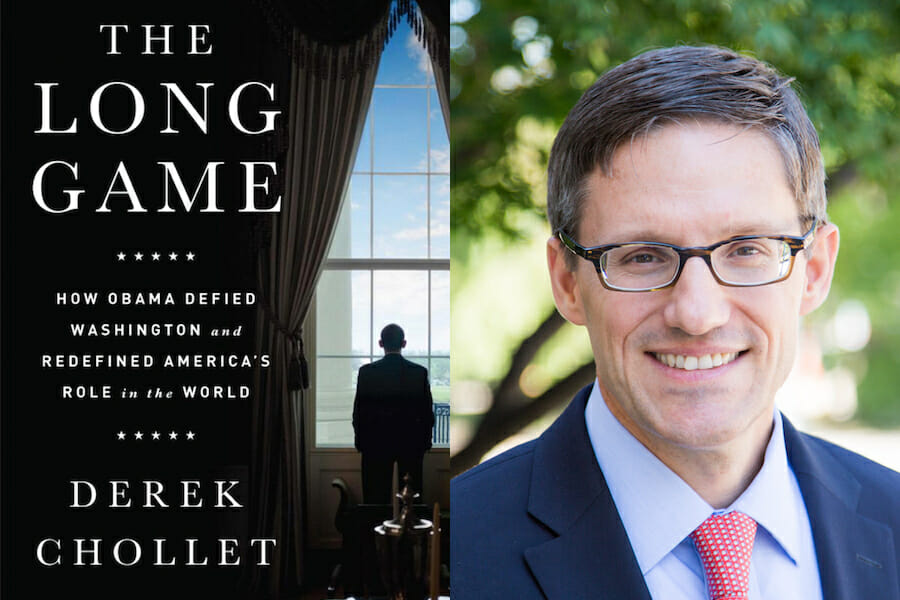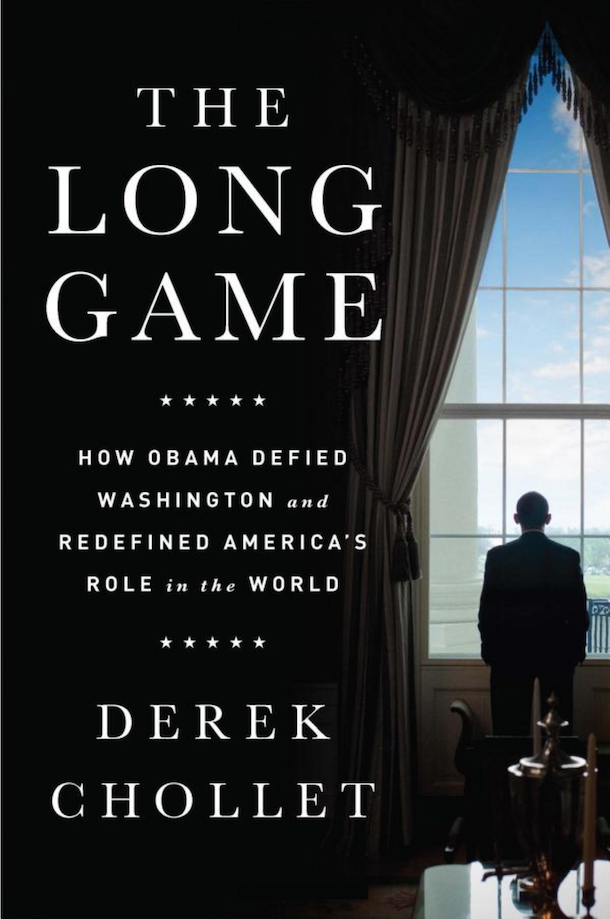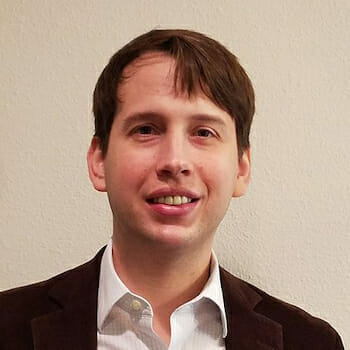
Books
Derek Chollet on Books and Writing
Derek Chollet (@derekchollet) is Counselor and Senior Advisor for Security and Defense Policy at the German Marshall Fund. This interview has been edited and condensed.
Your book, The Long Game, was published earlier this year. Would you tell us a little bit about it?
The book is an effort to both describe Barack Obama’s foreign policy, but also to explain it. It certainly draws on my experiences serving in the Obama administration — at the State Department, the White House and the Pentagon — but it’s not a memoir.
I really try to take a step back and reflect on what Obama has set out to do as president in terms of foreign policy, and the challenges he’s faced along the way. The book is an attempt to look at his presidency analytically.
The title The Long Game has a double meaning. Firstly, I outline in the book what I believe is Obama’s grand strategy, or at least that’s what academics would call it. I’m not sure Obama would call it that since that’s more of an academic phrase.
I contend that his strategy in the world is the long game, positioning the U.S. in terms of the use of its power, resources in the world, and leadership — so that it can lead over the long-term. And, in fact, in service of implementing that strategy, one has to be willing to endure criticism in the moment. Obama will make certain decisions and get criticized for not doing certain things, but that’s in the service of implementing a long-term strategy.
Secondly, what I do in the book is to give an early take on what I think Obama’s legacy in foreign policy will be. My contention is that in history’s long-game the Obama record in foreign policy will be looked upon, on balance, as a successful one.
What sort of feedback have you gotten on the book?
I think the book has been treated respectfully. Obviously we’re in a [U.S. presidential] campaign season. I knew that it was going to be important to have published the book now. This presidential campaign is very much about the Obama presidency and what people think of the Obama years; that’s how Secretary [Hillary] Clinton and Donald Trump are framing their respective candidacies.
I think there are many people who believe Obama has been a failure and my hope is that with this book — if I don’t change peoples’ minds — I’ll make them look harder at the argument that Obama has been a failure.
And there are many people who look out at the world and see a lot of uncertainty, a lot of turmoil, and I don’t deny that that is happening. I had a front-row seat for that during a lot of my time in government. But I want to try to explain what Obama is trying to do and how I think he’s handled some very difficult problems and managed certain trade-offs.

I’ll be very interested as time goes on, as we get away from the heat of the political campaign, how historians and others really examine Obama’s leadership. My hope is that this book will be an early take that people have to contend with in terms of assessing Obama’s foreign policy.
How long did it take to write? Do you have a writing routine?
It took a little less than a year to write. I do have a writing routine. I did not set out to write a definitive narrative history of Obama’s presidency. There have already been several very good narratives written about various aspects of Obama’s foreign policy. There have also been some very important memoirs written about Obama’s foreign policy –including those by Hillary Clinton, Leon Panetta and Robert Gates.
I did not set out to do an exhaustive history and, in some ways that made the writing a little easier. In addition, many of the issues I cover in the book — Syria, Egypt, Iran, Israel, Libya and Obama’s broader strategy — are issues that I worked on in government. So, it was not a book that required a lot of research.
In terms of a routine, I find that I have to stay fairly disciplined. My time at the German Marshall Fund, a think tank, has allowed me the flexibility to carve out time to write. I can keep my BlackBerry and iPhone a safe distance away and really focus on my work.
I tried to write a few hundred words a day. On some days I wouldn’t get much done; on some days I would get a lot done. I was also able spend some time last fall — about a week or so — and pretend like I was travelling. I wouldn’t have any meetings or take phone calls; I’d try to stay off email as much as possible during the day to just concentrate on writing.
I’ve had the chance to work on several books before, so I had some sense of how to carve out that time. And since I didn’t need to spend that much time on the front end doing research, like spending time in archives for example, I was able to focus on what was in my head.
What advice would you give to aspiring authors?
Read a lot. I’m a constant reader. I try to read widely and am usually reading multiple books at a time. Of course, I get paid to read up on foreign policy, but I also read a lot of fiction. I read a lot of nonfiction that doesn’t have anything to do with foreign policy.
Interestingly, of the three books that most influenced my thinking in the writing of this book, two had nothing to do with foreign policy. One of those was The Big Short by Michael Lewis. That book covered Establishments and how we think about success. It also talked about how we can sometimes miss the big story that’s sitting right in front of us.
The second book was by a surgeon, Atul Gawande, called The Checklist Manifesto. In reading that book, I was very struck by how the challenges that doctors or surgeons face are similar to the challenges faced by policymakers — in the sense that both are dealing with imperfect information and misleading indicators. One has to make snap decisions, one is constantly grappling with questions of intervention or nonintervention. There are debates about how to use the most modern tools that science and technology could offer. And in The Checklist Manifesto one of the conclusions is the importance of checklists to help leaders in complex situations make decisions. As I was reflecting upon this I realized that Obama doesn’t have a foreign policy doctrine; he doesn’t have a one-size-fits-all answer to all problems. But he does use what I would call a foreign policy checklist.
Both of these books were very influential in terms of how I thought about my experiences in the Obama administration and Obama’s foreign policy more generally.
